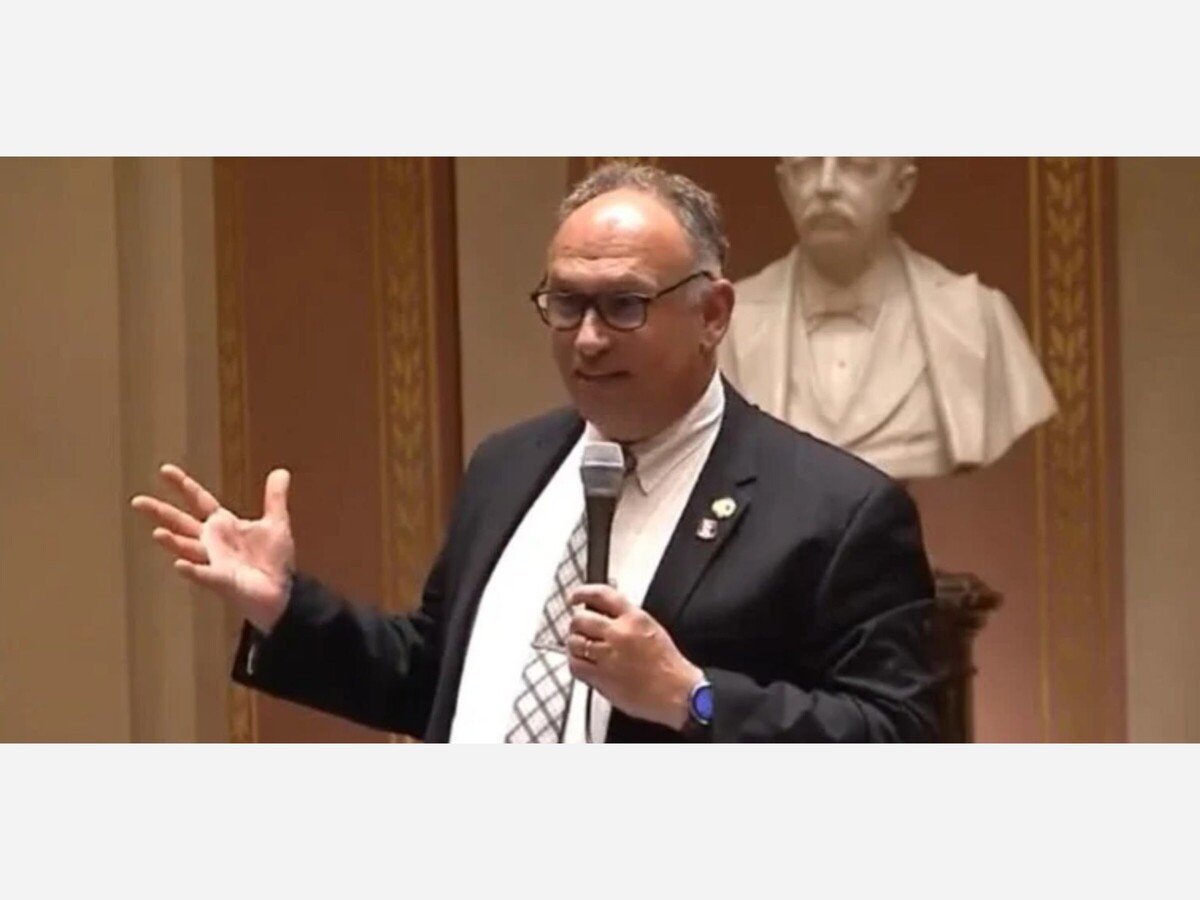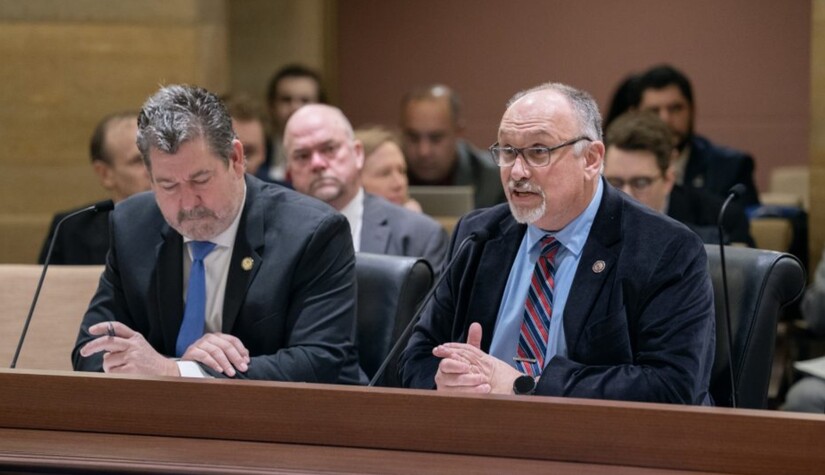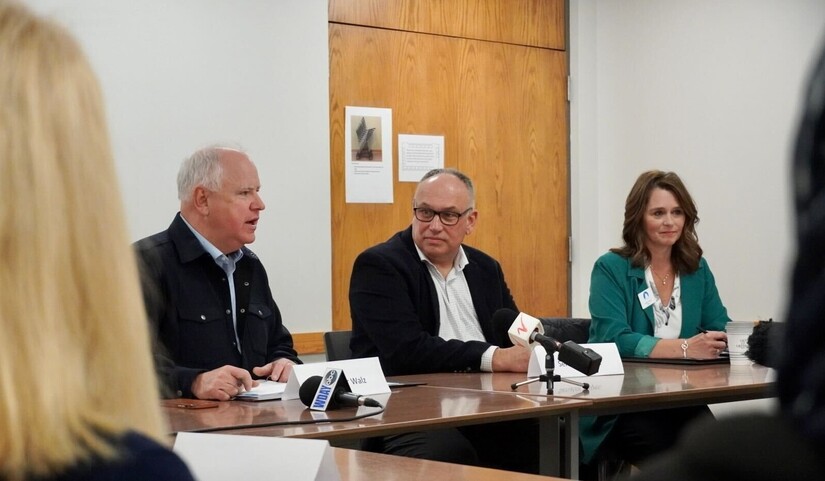Image

Exclusive Q&A with Senator Robert Kupec on Free Statewide E-Waste Disposal Legislation
Interview by Tom Akaolisa | MinneapoliMedia
Tom Akaolisa: Senator Kupec, thank you for joining us.
Sen. Robert Kupec: Thanks, Tom. I’m glad to be here to talk about this important bill. It’s ambitious, but overdue. Minnesota’s e-waste laws haven’t been updated since the early 2000s—they still reference things like VCRs! We need to modernize how we handle electronics disposal statewide.
The Inspiration Behind the Bill
Tom Akaolisa: What inspired you to propose legislation for free statewide e-waste disposal?
Sen. Kupec: I’ve been passionate about recycling since college, where I interned with a campus recycling group. My wife jokes that my recycling pitch helped win her over! That passion never left me.
More recently, our work on the Digital Fair Repair Act showed me how incentivizing repairs can reduce landfill waste. Many recyclers don’t make money just recycling—they earn it through refurbishing. Meanwhile, counties, especially in Greater Minnesota, are stuck with huge costs for collecting and transporting e-waste. And when people are charged $25–$100 to recycle a TV, they’re less likely to do it—leading to illegal dumping and more cleanup costs for counties.
Tackling Minnesota’s E-Waste Challenges
Tom Akaolisa: What environmental challenges does this bill target?
Sen. Kupec: Batteries—especially lithium-ion—are a big problem. People often toss them into curbside bins, which is dangerous. We’ve had garbage trucks catch fire from compacted batteries. Material recovery facilities (MRFs) report three to four fires a week. One even burned down.
That’s driven up insurance costs for these centers, raising recycling costs overall. We need better education and infrastructure to handle battery disposal safely. Plus, landfills are nearing capacity. Creating new ones is extremely costly, so keeping electronics out of landfills is vital.

Legislative Progress
Tom Akaolisa: What’s the bill’s current status in the legislature?
Sen. Kupec: It passed through the Environment Committee and then moved through State and Local Government, where we proposed creating a quasi-governmental body to manage e-waste recycling and reimburse counties. It’s now heading to Judiciary and then to Commerce.
States like California and Oregon have similar programs, but ours would be more comprehensive. We want to include nearly anything with a plug or battery, making Minnesota a national leader.
Collaboration Is Key
Tom Akaolisa: How are local governments and other stakeholders involved?
Sen. Kupec: Counties are crucial. They’re bearing the brunt of the costs and are advocating hard for relief. I visited recycling centers across the state to understand their needs. In my district, for example, we co-own a waste incinerator. Removing electronics makes the burn cleaner and keeps us in compliance with federal standards.
An unexpected but powerful partner has been the Lutheran churches. They launched a statewide letter-writing campaign through their social outreach, urging lawmakers to support this bill. It’s made a real difference.
Shifting Consumer Behavior
Tom Akaolisa: What behavioral changes are you hoping to encourage?
Sen. Kupec: First, we want to remove the financial barriers to responsible recycling. If people don’t have to pay to dispose of electronics, they’ll be less likely to dump them illegally.
Second, we want to make it easier. I remember when my town’s drop-off site was a dark warehouse with limited hours—it felt sketchy. Now we have a clean, accessible site with extended hours. Convenience matters.
On Curbside Collection
Tom Akaolisa: Will curbside e-waste collection be part of the program?
Sen. Kupec: Not initially. Curbside collection has major logistical and contamination risks. But once we have a robust and efficient statewide infrastructure, it’s something we could consider for the future.

Preparing for Rollout
Tom Akaolisa: How are you planning the rollout of this initiative?
Sen. Kupec: The program launches in 2028, giving us time to build awareness and infrastructure. Counties will need to set up drop-off sites, and we’ll fund public education campaigns to inform people when and where to recycle.
Sustainability and the Bigger Picture
Tom Akaolisa: How does this fit into Minnesota’s broader environmental goals?
Sen. Kupec: It aligns perfectly with last year’s packaging recycling reforms and is part of the Governor’s budget. On a legislative trip to Germany, I saw communities recycling at 95% rates. We’re nowhere near that—but even halfway there would be a game-changer.
Plus, recovering valuable materials like lithium, copper, and gold helps reduce dependence on new mining and supports domestic manufacturing. This is about environmental stewardship and economic opportunity.
Looking Ahead
Tom Akaolisa: What’s your ultimate vision for this initiative?
Sen. Kupec: I want counties to stop losing money, taxpayers to see relief, and electronics to stay out of our ditches and landfills. This legislation will need updates as technology changes, but it’s a strong start. We can’t wait another 20 years to act. We have to be proactive, flexible, and forward-thinking.
Tom Akaolisa: Thank you, Senator Kupec. This bill could have a real and lasting impact for Minnesota. We appreciate your time.
Sen. Kupec: Thanks, Tom. This is a win-win: good for the environment and good for taxpayers. That’s the kind of policy we should all support.
For more interviews in MinneapoliMedia’s “Meet Your Legislator” series, visit minneapolimedia.town.news.